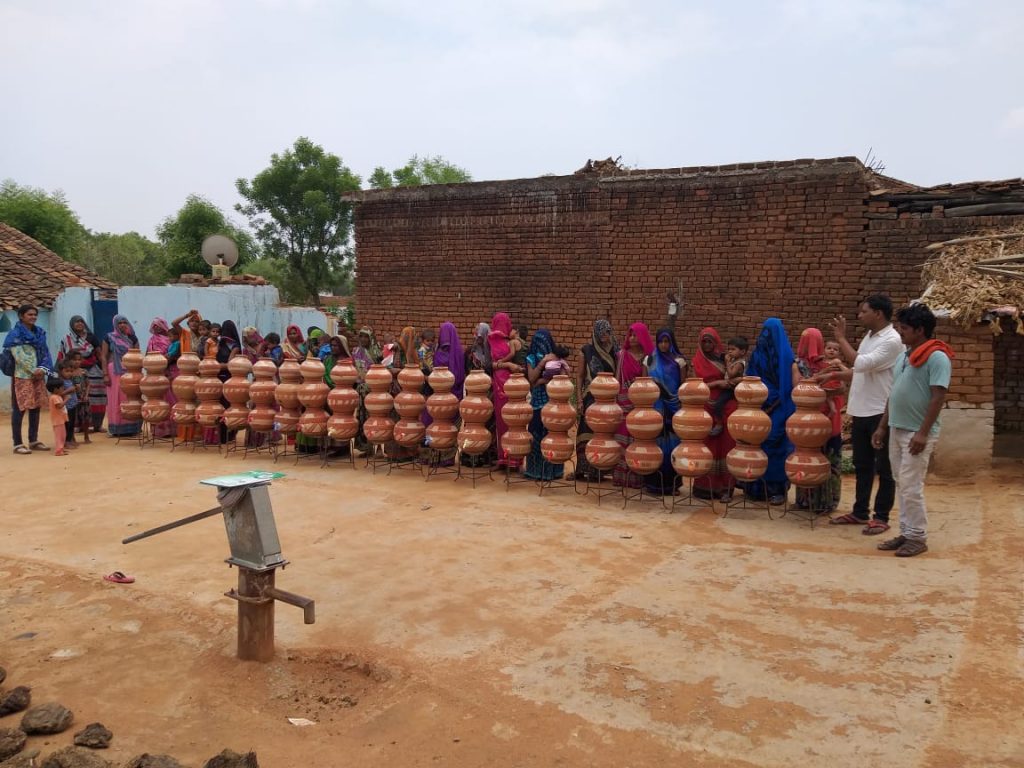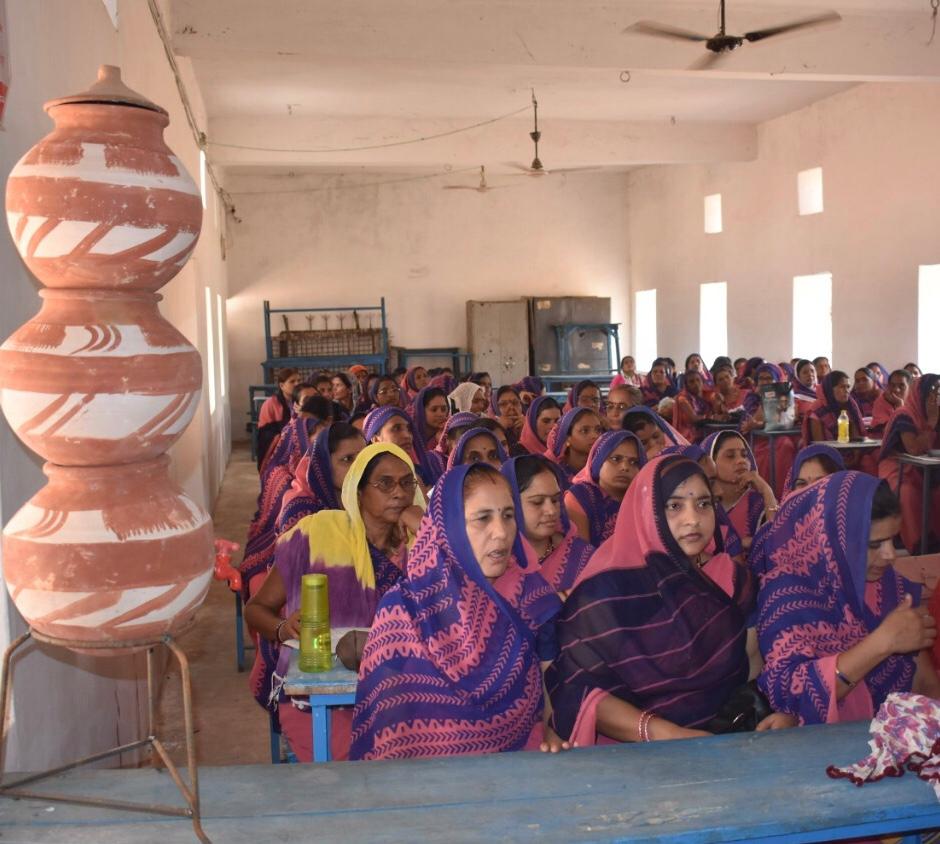Safe and clean drinking water is an important aspect of healthy nutrition. Water contamination and lack of access to clean drinking water cause major health problems, particularly serious malnutrition in children living in rural India. To address the issues of malnutrition, Welthungerhilfe in Madhya Pradesh adopted an integrated approach working on various vital elements to create a nutrition smart village; and access to clean drinking water is one of the priorities.
The aim is to bring about a behavior change amongst the poor and vulnerable communities with identified malnourished children. Towards this, the concept of low-cost, locally sourced, environment-friendly ‘matka filters’ or earthen filters have been introduced in Sheopur and Chhatarpur districts of the state. The matkas not only filter iron contaminated water but also due to the transpiration from the earthen material of the filters, the water stored in it remains cool.

Matka filters
The matka filter consists of three earthen pots placed one on top of another. These pots are made of clay, fine sand, and hay or sawdust. A hole is bored at the bottom of the first two pots and another hole on the sidewall of the lowest pot to fit a tap. The two pots on the top are molded with a 0.59-inch broad semicircular mouth so that one sits perfectly on the other when placed on top. A lid is also molded for covering the topmost pot. This completes the outer body of the matka filter and the entire setup comprises a single unit.
The filtration process constitutes of three layers, each separated by a nylon mesh. The mesh is placed inside the middle pot and a two-inch-thick layer of fine sand is spread on it and the cloth is tied. The sand before being placed on the mesh is thoroughly washed to remove any clay particles. Another nylon mesh is placed on the sand layer and a two-inch layer of brickbat is placed over it and the mesh is tied. This is followed by a new nylon mesh with a two-inch-thick layer of wood charcoal on top. The filtration medium is finally covered with a nylon mesh which completes the filtration section of the matka filter. The pots have a diameter of 10-inches and a wall thickness of 0.59 inches. The filter is one foot high and can store water for up to 15.69 liters.
The iron contaminated water is poured in the topmost pot which gets filtered through the filtration medium placed and gets collected in the lowest pot. The materials used in the filter i.e. sand, wood charcoal and chipped bricks must be checked and cleaned to maintain the quality of water. This design of the matka filter is designed by Megh Pyne Abhiyan (MPA).
Promotion and training
Welthungerhilfe’s partners MGSA and DARSHANA are vigorously promoting the idea of matka filters amongst the mothers and local healthcare workers. 100 targeted villages in both districts have been introduced to this concept and are also being scaled up in the entire district. The team is also orienting local Anganwadi workers on the model, its importance and usage. These workers are helping in creating awareness and spreading the knowledge through regular meeting organized on nutrition education. Under the food and nutrition security programme, till date 126 and 384 Anganwadi workers in Chhatarpur and Sheopur districts, respectively have been trained.
Families have now started to use these cost-effective local filters. Production of the filters is also generating local livelihoods and income for local potters. The mothers, in particular, are now better aware of the importance of clean drinking water and its direct impact on their children’s health.

This initiative is being promoted amongst the families with malnourished children under the Regional Nutrition Programme on a multi-sectoral approach to promote nutrition smart villages and the food and nutrition security project. Matka filter is the local indigenous solution to ensure safe and clean drinking water.



